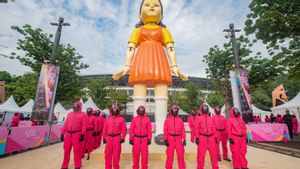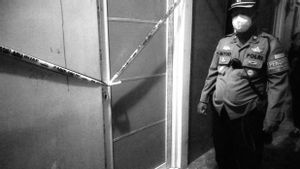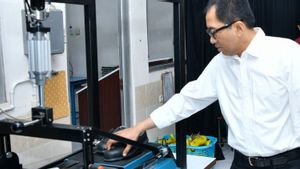JAKARTA – Self-isolation after receiving a positive test result for COVID-19 is mandatory. But not a few after undergoing isoman still feel weak and have a dry cough, easily tired, dizzy, and nauseated.
Doctor Tirta through his Twitter thread provides advice on how and why this condition is still being experienced.
Of the symptoms that are still experienced, the most are still coughing, according to Doctor Tirta "these symptoms are still mild. Because your body is still recovering".
This means, patients who have finished isoman need not worry but still need to recognize the symptoms.

"Yes, imagine. Covid is just after the war with our antibodies. It's natural that many cells are damaged. And especially the lungs, it's slow to recover. So it's still coughing. While waiting for the virus to be removed, so we feel weak," wrote Doctor Tirta explaining how the body work.
Being exposed to COVID-19 makes the body's antibodies work hard against it. In the process, there are damaged cells, especially in the lungs. Therefore, they still experience coughing even though they are in the recovery process or the test results are negative.
Doctor Tirta continued the explanation "Well, in some people, some have even caused a drastic increase in their d-dimer. Due to this covid virus, sometimes they complain of suddenly swollen feet, some suddenly tingling".
Tingling and swollen feet are experienced when blood clots occur during recovery, also known as D-Dimer. This means that after self-isolation and negative test results, they cannot carry out their activities as usual.
The English, Chinese, Japanese, Arabic, and French versions are automatically generated by the AI. So there may still be inaccuracies in translating, please always see Indonesian as our main language. (system supported by DigitalSiber.id)













